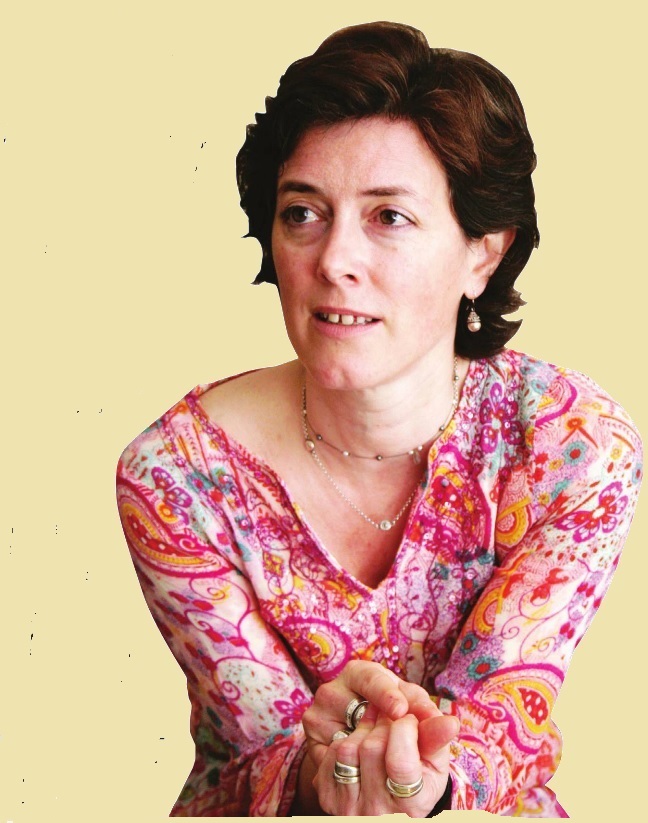
Historical causes, individual choices
For six years, Michela Wrong covered Africa as a journalist and wrote three books on DR Congo, Kenya and Eritrea. Ivan Rugambwa spoke to her on the sidelines of the recent Writivism Festival in Kampala.
Firstly, what are your impressions of the continent over the decade that you’ve covered it?
That’s a really difficult question for me to answer. Africa is too complex and diverse for glib generalisations. It would require several books.
You’ve written about Kenya, DRC and Eritrea. Why particularly those three?
Congo I knew it pretty well. I lived there for a year and had been visiting for five years, right from the buildup of the rebel movement that finally overthrew Mubutu, and his eventual exile. Eritrea I had been to visit many times and it seemed so different. So I wanted to talk about its culture, the people who had emerged through a guerilla struggle with a very strong sense of purpose, only to find themselves in the sort of trouble they’re in now. And for the John Githongo book, I had lived in Kenya for four years, and I had grown very concerned at the levels of ethnic rivalry, and how corruption had become such a massive problem for the country. And the way to tell that story was to center it around the story of John Githongo, who had been a very good friend of mine.
`In the Footsteps of Mr.Kurtz’, your book on the Congo is a very indicting account of Mubutu’s leadership. But you discount his role in unifying the Congo, which he inherited very divided. What do you make of that?
Well, firstly, the country called Zaire or the Congo, was the original creation of the Belgians, not Mubutu. Then of course they began to split apart, and yes, Mubutu did try to bring them together again. So yah, Mubutu could have been a symbol of Unification, but the level of economic decline that took place during his reign pushed the country to the edge. You have a very rich country with vast quantities of gold, diamond, timber, that should have been a regional economic giant, but it isn’t.
In the same book you a chronicle the prominent role played by external players; the World Bank and the U.S., in sustaining Mubutu. To what extent do foreign actors bear responsibility for the state of present day Africa?
I am very critical. The cold war, for example, played a very significant role in sabotaging Africa’s development. The role Washington and Moscow played in fuelling conflict and propping up dictatorships because they happened to be on ‘the right side’ obviously did a lot of damage. In my books, I also single out western aid for criticism, because I believe that while well intentioned, organisations like the World Bank, DFID, and IMF have ended up propping up very corrupt, and often very repressive governments. We just saw riots in Ethiopia, troops opening fire on crowds, hundreds of people killed. Yet Ethiopia remains a donor darling.
The challenges you point out, whether its corruption, ethnic rivalries or mismanagement seem to be characteristic in many other African countries. What do you think could explain this uniformity of malfunction?
Well, every country has its history, but I think there are some broad trends. There are long-term issues like slavery and its longstanding effect, then there’s colonialism and the very hurried handovers at Independence. But most importantly, most of these countries continue to grapple with a sense of nationhood. The Kenyan nation, for example, doesn’t seem to make sense to many Kenyans. You’re not sure whether the nation-state experiment is going to work.
Isn’t that then a repudiation of your character-centered kind of criticism, that the problem could be beyond individual characters and could instead be a product of structural complexities inherent in their state formation?
Yah, but I don’t think that you can split an individual from a trend. Structural contexts give rise to Individuals. I don’t think there’s a distinction. Someone like Mubutu for example was probably always going to emerge, because of the historical trends in the Congo.
Don’t you then think that such structural limitations or historical precedents could in a way impede implementation of a transformative agenda that a leader, no matter how well intentioned intended to pursue?
I think the big difference is in the outcomes of many of these countries which actually show that it isn’t the same everywhere. If you look at Central African Republic, and Tanzania for example, or Angola and Botswana, two countries both rich in diamond and other minerals, completely different things are taking place in those countries, and some of that is thanks to exemplary leadership, which was present in one country, and absent in the other.
But how come then that no African country, be it those you say have had exemplary leadership, has been able to break through this cycle of poverty and want?
Well, I think things are moving, but may be not as fast as people would like. So, there may be nowhere in Africa that looks like Switzerland, Denmark, or Sweden, but there’s also nowhere that looks like Africa of the 1960s.
Still on the issue of leadership, obviously, your version of exemplary leadership is associated with democracy, human rights etc. But countries like Ethiopia, Rwanda, et-el that have often been singled out for criticism for defaulting on the same standards, are also some of the best performing economies on the continent. What do you think?
Well that’s a big debate currently. There are a lot of people in the development world who believe that what’s wrong with having an autocratic President, as long as kids are going to school, are getting vaccinated, railways are being built? I think that’s a mistake, because then you forget that beyond the material, people have spiritual needs that need to be tended to. They need to be free, to speak freely, to buy a decent newspaper, to speak to friends in a café without them constantly looking over their shoulders to see who’s listening in.
So, what can you point to as the impact of your books on either these countries, or their relationship with their development partners?
I think I would be very arrogant or naively optimistic if I thought that my books would create changes. But I think that the beauty about writing is that people like you, in Kenya, Eritreans in the diaspora read me and they can start thinking about these issues. If I thought I knew the answers, maybe I would have sought to go into politics. Of course I would love it if in Kenya, there were many prosecutions as a result of the book I wrote about corruption in Kenya.
That’s very cynical though. You don’t think that there’s more to writing, beyond the need or the temptation to tell a good story?
I don’t think it’s cynical. I think it’s realistic. One of the things am proud of though is that my books are on the reading syllabus for students of International Relations in universities in Canada and the U.S. So youngsters will read my books and may be they will help them understand Africa differently.
Your book, ‘It’s Our Turn to Eat’ was a big story in Kenya, for the graphical manner it exposed the dirt and corruption amongst Kenya’s ruling elite. You don’t think there’s been any reform in response to your book?
I don’t think there’s been any reform. I am still waiting for the day the people involved, not just in Anglo-leasing, which was a big scandal under Kibaki, but also Goldenberg, that was a big scandal under Moi go to jail or refund the money. But I don’t see that happening.
Eritrea seems to have been ostracised and is now a pariah state. Yet in your book, you paint it as a victim. In fact, many people think that yours was a very sympathetic story of the country and its leadership.
Well, it depends on who you talk to. The authorities in Eritrea don’t think the book was sympathetic. They won’t give me a visa. Yet some people say, oh, she’s pro-government. I think the West has been hypocritical with Eritrea. I mean Eritrea’s Human Rights record is pretty the same as that of Ethiopia. Yet everybody in the West criticizes Eritrea and turns a blind eye on Ethiopia. It’s unfair.
You’ve been able to accomplish three books on three countries, in about 10 years, which is quite a laudable feat. Why do you think African Journalists shy away from writing such stories themselves, yet they live the experiences daily?
For many years, it was considered politically dangerous to write non-fiction. I mean, if you’re living here, you don’t want to write about Museveni, or Uhuru in Kenya, because it is going to cause problems, to you, your family, you might lose a job, be vilified in newspapers etc. But I think this is changing. For example, we can see Daniel Kalinaki’s book on Kizza Besigye. One other challenge for African writers has been that the size of the readership has been disappointingly small, while getting physical books from a country to another remains too expensive, due to transport problems and customs charges. So everyone now is doing E-books, which is again limiting, because it means that the only people who can read you are those who have access to internet and wi-fi.
On the Writivism Festival; do you think there’s any particular way such festivals aid African writers and enhance readership on the continent?
I think these festivals are great. Take this festival for example. There are Nigerians, Ivoirians, Congolese, Rwandans, Kenyans, Zimbabweans, basically, it’s a very nice International festival. There’s more interaction and communication between writers, cultures and genres of literature, which is helping re-ignite the flame of writers. There’s a good conversation going on. Ten years ago, there weren’t many of these on the continent. My problem though is the readers are not yet as involved in the festivals as the writers. The profile of some of these festivals remains low. I think that should be the next step for organisers.
What do you think of the Writivism Festival and the Ugandan literary scene?
I think Uganda is extraordinarily vibrant as a country, in terms of literature. It’s not particularly a big country, but it produces very talented writers. The First Scholarship winner of one of the Foundations I work for, the Miles Morland Foundation was a Ugandan- Doreen Baingana. We support Gorreti Kyomuhendo’s African Writers’ Trust, we support Femrite, and we support Writivism. Generally, we’re sort of puzzled, in a good way as to how so much is coming out of Uganda. The amount of creativity is encouraging. And another distinction for Uganda is that unlike many other countries, majority of the writers here seem to be women.
Finally, on your latest book, `Borderlines’. You seemed to be flourishing as a non-fiction writer, and then all of a sudden, this! What was the motivation for the fiction?
I think for journalists, when they think they have become novelists, the natural trend for many is to start with non-fiction, because that’s more like journalism. So that was me. But it was nice to do fiction. You can go into people’s minds. You can explore their emotions. It’s more subjective. You can imagine and write freely. It’s liberating. Non-fiction is very limiting. You have to have the facts.
So is there any new book your readers should be looking forward to?
Hhm, I am writing a book about the Great Lakes, but it’s too early to talk about it really. I am still gathering ideas. But it means I have more reason to be in Uganda more often.
****
editor@independent.co.ug
 The Independent Uganda: You get the Truth we Pay the Price
The Independent Uganda: You get the Truth we Pay the Price



